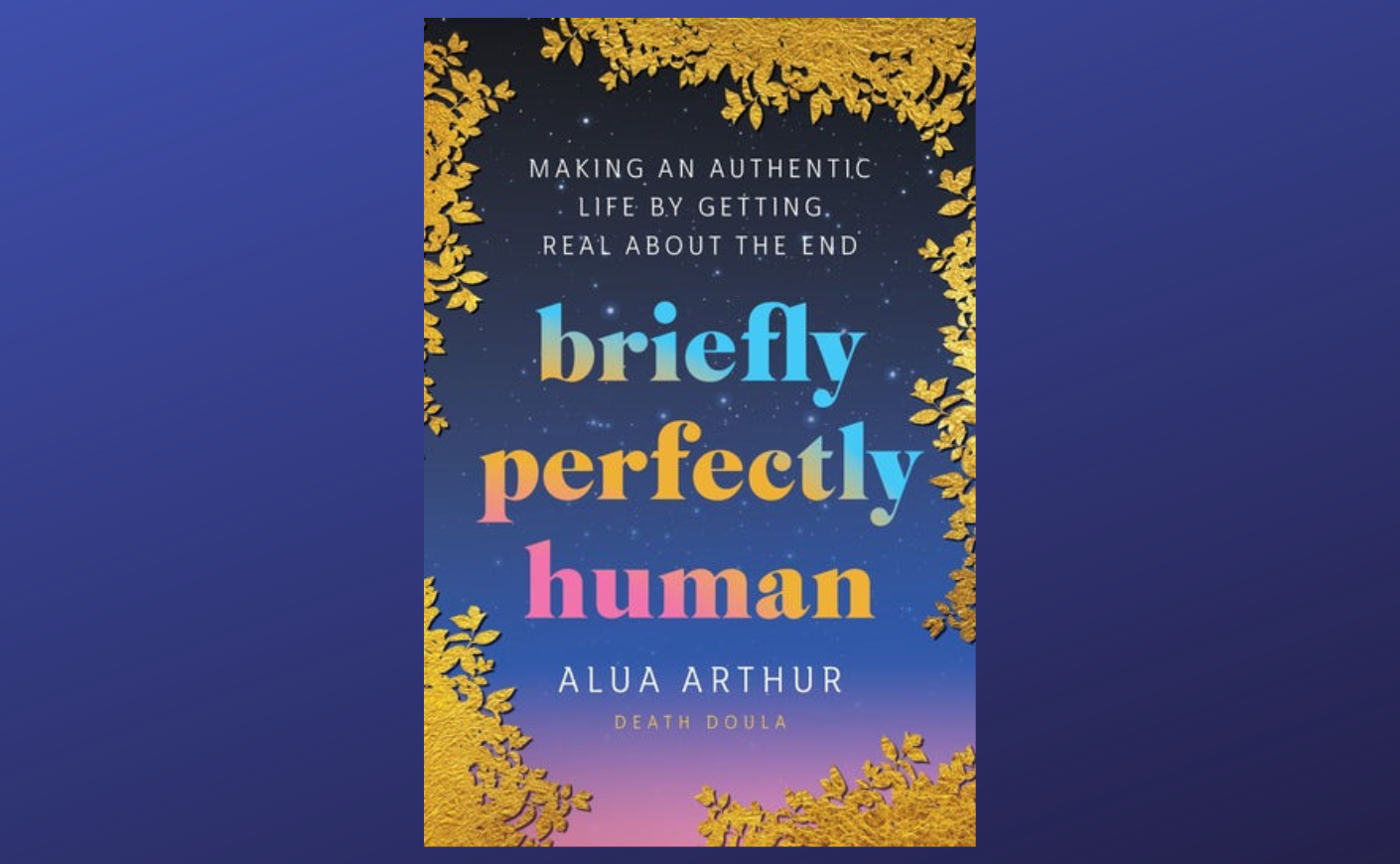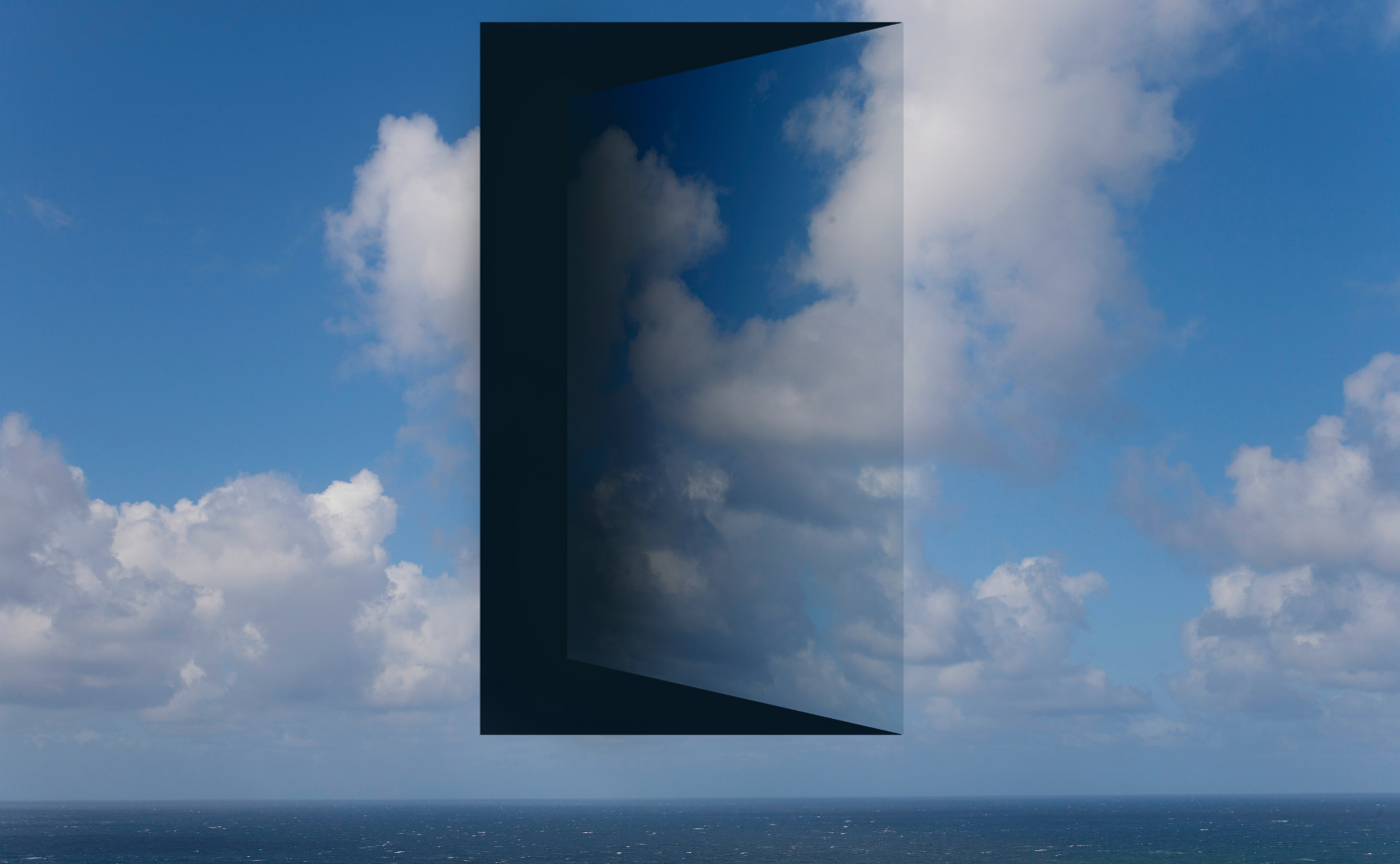Death remains a taboo topic, even though it’s something every one of us will experience eventually — but Alua Arthur wants to change that.
Arthur is an experienced death doula who works with clients and trains the next generation of deathworkers through her company Going with Grace, and she’s already familiar to the Katie Couric Media community. She’s previously answered your burning end-of-life questions and had a candid conversation with Katie about how to handle the reality of a terminal diagnosis.
Now, she’s giving us an even more intimate look at her work with her new book, Briefly Perfectly Human: Making an Authentic Life by Getting Real About the End. Below, we share an excerpt from this gripping read, in which Arthur describes what it’s really like to shepherd someone through their final moments — and the toll these moments take on her, too.
As Justina moves into the active dying phase, I call the list of six people she has requested. However, word gets out that she is dying, so dozens of people show up, lurking around in the living room waiting to get their moment. It is like she is in a death zoo, with voyeurs trying to get the last little pieces of her while she is still living. It is a juggling act to hold space for their grief while also respecting Justina’s wishes. I do the best I can, and still feel like I am failing.
This was not supposed to be happening. People fling themselves crying on her body or hold on to her feet while sobbing. I want to tell them to back off her, but I leave them there for a beat, then help them up and walk them behind a folding screen we’d put up to try to protect Justina’s dying space. As soon as I move one person away, another sneaks in behind me.
Things get worse. Someone has taken down the folding screen, leaving her in full view. I enlist the hospice nurse like a bouncer to keep people away from Justina as she starts to make her exit. Hospice nurses can be death doulas’ best allies in this work and vice versa. We are an extension of care for each other: an extra set of hands, eyes, and ears. Noticing that Justina’s breath is slowing, the hospice nurse nods at me. I can no longer pay attention to keeping out extra folks. I turn my focus solely on Justina. I take my place by the side of her reclined armchair and hold her hand.

We hold vigil as her breathing slows, singing songs she’s requested and stroking her head. The hospice nurse comes closer, holding the perimeter around Justina and her chosen six friends, and together we count seconds between her breaths. When she is taking just four breaths a minute, we glance at each other. She is close. After she releases her last breath, we take a sacred pause. The room is still as the gravity of what has occurred dawns, silent except for a few muffled sniffs. I model reverence by not moving. Right after a death, there is nothing to do but to sit in honor of what has just occurred.
When rustling begins and the cries get louder, I place Justina’s hand in the hand of one of her friends nearby and take the center of the room. Through halting speech, I acknowledge the magnitude of what we’ve just witnessed, encourage everyone to be gentle with themselves in their grief, and ask for privacy as we handle Justina’s body before the funeral home arrives. I know the funeral home won’t come until we call them, but I just want the folks to give us, and Justina, some space. They file out, shell-shocked—the show is over.
Finally, it is just us.
We take a collective exhale after I’ve closed the door. I hold a bowl of warm water with a few drops of lavender oil in it, so her best friends can wash her body as Justina requested. We sit with her body. Her friends tell absurd stories about her life and her lovers. They joke about her hard head and big vision. They stroke her hair and kiss her hands. And they hold their friend in a way that only those who know us best can hold us.
On the road home, I call my mother and cry so hard I can’t see the road. For over eight hours, I haven’t taken a moment to myself, haven’t had a sip of water, or a bite to eat. All of my focus has been on trying to keep Justina’s death as intimate as she requested. My mother suggests I pull over until I gather myself, but I just want to be in my home, my sanctuary, so I call a car service to take me the rest of the way. I leave my car parked on a side street in L.A.
The rest of the day, I sit on the burnt-orange chaise lounge by the window in my apartment staring into the void, mindlessly eating kettle potato chips and crying. Something about the fat, salt, and crunch soothes me, particularly after I’ve attended a death. I am exhausted and regretful. I fear that I have failed Justina in her request only to have the people she most loved and trusted present at her bedside. That’s not what she got.
Even after six years of practice, I wonder if I am cut out for this work.
After a few hours spent trying to make sense of what I experienced, I remember that I need to wash my body: a regular ritual when I get home from seeing a client. It engages my senses to ground me in my body and washes off what is not mine to keep. The thought of standing in the shower overwhelms me. Naked, I step into the bathtub but cannot figure out how to block the drain to take a bath even though I’ve done it dozens of times before. I cry out of frustration that I don’t know how to care for myself at this moment. I call David, my boo of a year, and just tell him that I need him. I don’t even know exactly what I need.
David comes over. He fills up the bathtub, adds Epsom salt and eucalyptus oil, and makes me a cup of tea while I soak. He sits on the toilet, listening as I pour out all my failures as a doula and my fears over my inadequacy to do this big work. He towels me off, and holds me while I talk and cry, and talk and cry, until I fall asleep. I am laid bare, snotty, and feeling like a failure.
A few days later, I begin to feel clarity again. In our session, the death doula students I am now teaching reflect back to me what I have shared with them about how to doula. They remind me that I held the differing experiences of both the grievers and the dying. I stayed grounded in the chaos. I worked with the medical care team. I honored my client’s needs above all, and I honored my need to also be taken care of. And they remind me of the bulldozing and purifying power of witnessing a death.
“Failure,” as I had conceived of it, was just another familiar demon rearing its head in my subconscious. Justina taught me to divorce myself from the experience. It was not about what I could do and what I could not. It was about her death. Justina had died in the arms of her closest friends, as she had asked. I had held her hand. I had served her. For people on their deathbeds, serving their needs is all we can do.
Excerpted from the book Briefly Perfectly Human: Making an Authentic Life by Getting Real About the End by Alua Arthur. Copyright © 2024 by Alua Arthur. From Mariner Books, an imprint of HarperCollins Publishers. Reprinted by permission.









